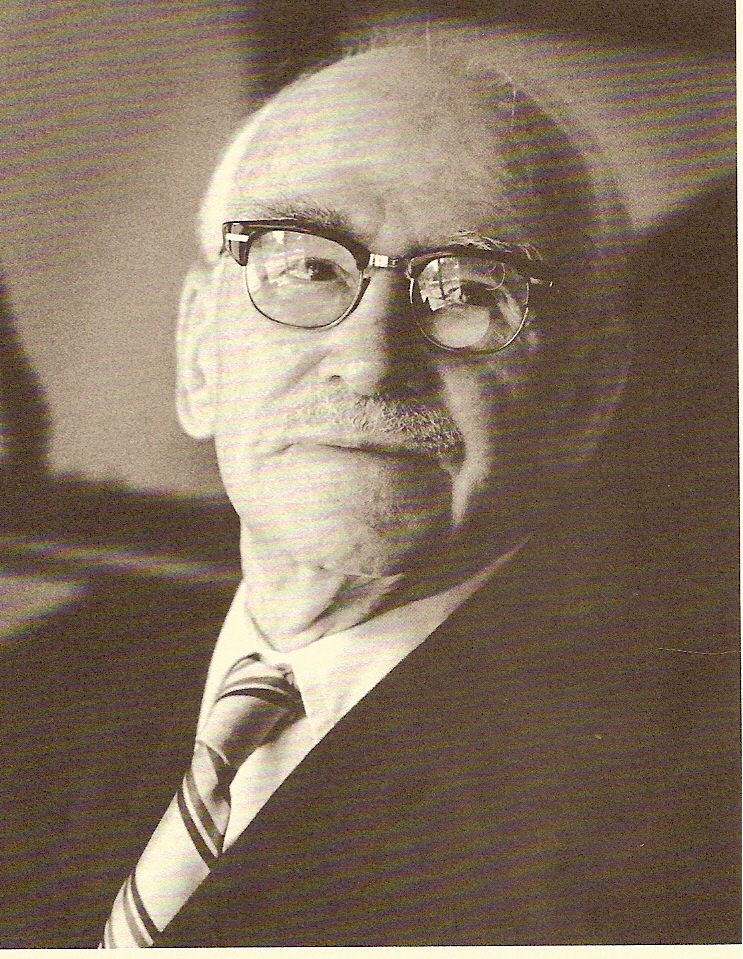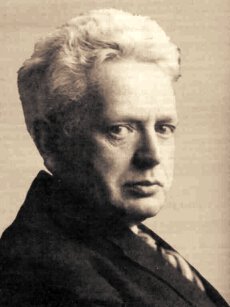
AnthonyFlood.com
Philosophy against Misosophy


Review of Ernst Cassirer, An Essay on Man. Yale University Press, 1944. From The Philosophical Review, Vol. 54, No. 5, September 1945, 509-510. In an essay posted elsewhere on this site, Cassirer scholar Donald Verene addresses Blanshard's criticism.
Posted May 13, 2008
Brand Blanshard
This is the last book Professor Cassirer wrote. One cannot read it without feeling afresh how deep a loss the philosophic community sustained in his recent death. He was a mind of extraordinary range, equally at home, to all appearances, in the ancient literatures and in modern science, in history and in mathematics. He wrote extensively in both German and English. He had taught at Berlin, Hamburg (where he was rector of the university), Gothenburg, Oxford, Yale, and Columbia. Yet, as those who knew him will recall, he carried his learning lightly, and there was little suggestion about him of the Teutonic scholar; what impressed one rather was a singular simplicity, frankness and charm. Technically speaking, he had been for many years and in various countries a refugee. But no one thought of him as such. His cosmopolitanism, his gracious-ness, and his rare gift for language made him quickly at home in any land.
This book is full of evidences of Cassirer’s breadth of learning. It is in a sense a summary of his general philosophy. Some twenty years ago he published a massive work in three volumes on The Philosophy of Symbolic Forms, which has never been translated. Thinking it not very likely that it ever would be, he wrote this book to present to English readers, with new illustrations and reflections, the main drift of the earlier argument. The central contention is that if we would understand the nature of man, we must study, not his supposed metaphysical essence, but his functions or activities, what he does. And the most distinctive thing about his activities is that they are symbolic. He does not, like the animal, live in the immediate; he can look before and after; he can set up remote ends, ideal satisfactions, and pursue them persistently and variously. To know what he is, therefore, one must inspect these symbolic activities closely, bring to light their ends, and if possible discover some single end that gives direction to them all and brings them into harmony. In the first part of his book Cassirer lays this down as his avowed purpose.
But then the plot thickens. These symbolic activities embrace all the more important activities of man, and if they are to be duly scrutinized, one must offer something of a phenomenology and philosophy of myth, religion, language, art, literature, history, and science. On this tremendous task Cassirer launches bravely out. It would be impossible for so rich a mind to range over so vast a region without saying much that is illuminating, and this he does. If one wants to know what a ripe intelligence thinks about the various theories of the origin of language, or Frazer’s theory of magic, or the play theory of art, or Croce’s or Nietzsche’s or Lamprecht’s or Ranke’s theory of history, or the religious significance of taboo, or the place of Pythagoreanism in the development of science, one will find the answers here, together with countless other carefully weighed conclusions and arresting obiter dicta.
Does this suggest a feast marked more by richness than by order? If so, one shares the impression gained by the present writer. With the author’s prospectus in the back of his mind, the reader moves along expectantly, assured that so competent a guide will draw the threads together and show how all these activities converge upon some end that will illuminate and harmonize them. As he reads on, he feels a gradually growing uneasiness. Each successive chapter is good, but the picture of man that was to emerge from the harmonization does not seem to be coming nearer. Perhaps the synthesis was to be reserved to the end. I own that in my eagerness to see how it all came out, I peeked like a bad detective-story reader; there is a chapter called “summary and conclusion,” and I leaped forward to that. Even there I did not find what I looked for. The only thing offered as common to the various symbolic activities was a tension between conservative and progressive impulses—a tame conclusion, after all, to so much labor and learning.
It is not often that great breadth of learning and great gifts of speculative synthesis go together. Their combination is not impossible; Aristotle, Hegel, and Lotze, for example, achieved it magnificently. But the two things sometimes get in each other’s way. Great learning requires much rapid registry of facts and a mind attentive to detail. Speculative depth requires much abstraction from detail, much leisurely rumination, the persistent, patient exploration of numberless wandering paths. It is hard not to think, as one reads a book so wealthy as this in historic and scientific erudition, but at the same time so oddly inconclusive, that Cassirer was rather a distinguished reflective scholar than a great speculative philosopher. The learning is not mobilized in the interest of any theory; the book is not so much an “essay on man” as a series of essays, all suggestive and enlightening, which converge on—what?* It is hard to say. Perhaps there is no end, or harmony of ends, toward which all these activities are moving. But then, on Cassirer’s own showing, no philosophy of man would seem to be practicable; there would only be a theory of art, a theory of religion, and so on. This is in fact what he gives us. And an admirable gift it is, for which I, at least, am thankful. Only it is not what he sets out to give, nor all that the reader hoped to gain.
* A Cassirer scholar comments: “Here is the assumption of a continental philosopher that a system must ‘converge’ on something or lead to an overall unity of experience, an ideal unity. To some extent, the criticism is correct, for the main arguments are not in An Essay on Man, yet Cassirer’s claims about the need for unity should have alerted Blanshard that they were in his previous books, as Cassirer himself said in the Preface to that work written almost twenty years after the three-volume masterpiece [The Philosophy of Symbolic Forms]. Ironically, both Blanshard and Cassirer share some of the same assumptions about what philosophy should do, but Blanshard did not study Cassirer’s work enough to recognize the revolutionary way in which Cassirer satisfies traditional expectations about what a philosophy is and does.” William Schultz, Cassirer and Langer on Myth, New York and London, Garland Publishing, 2000, 51.